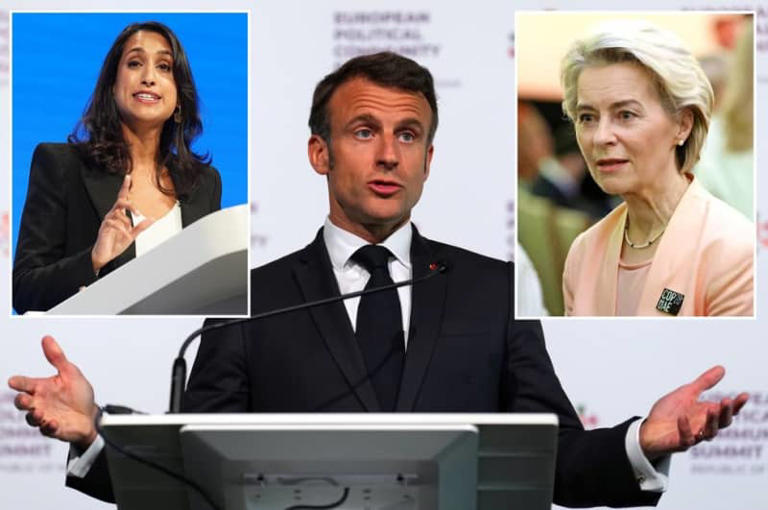Title: “Navigating the UK-EU Rift: The Battle over Russian LNG Imports”
In the ever-evolving landscape of international relations, the United Kingdom finds itself at odds with its European counterparts over the contentious issue of Russian liquefied natural gas (LNG) imports. With Energy Secretary Claire Coutinho spearheading the charge, Britain is pushing the European Union to halt its reliance on Russian LNG—a move that promises to ignite a clash of interests and ideologies across the continent.

Since January 2023, the UK has stood firm in its ban on Russian LNG imports, a decision triggered by the eruption of sanctions against Vladimir Putin’s regime in response to the Ukrainian crisis. Despite this embargo, concerns linger regarding the intricate network of pipelines crisscrossing Europe, potentially facilitating the surreptitious entry of Russian gas into British energy systems.
While Britain stands resolute in its stance, many European Union nations, including Spain, France, and Belgium, continue to depend heavily on Russian gas imports. The figures speak volumes: in 2022 alone, LNG imports from Russia amounted to a staggering €16 billion—a lifeline for energy-hungry economies. Although there has been a slight dip in imports in 2023, the reliance persists, casting a shadow over efforts to sever ties with Moscow.
The battleground extends beyond geopolitical posturing, delving into the heart of domestic politics within the UK Conservative Party. With Coutinho leading the charge, pressure mounts on France, perceived as the primary culprit in circumventing the sanctions regime. Figures such as Jacob Rees-Mogg and Sir Iain Duncan-Smith have lambasted French authorities for what they deem as a blatant disregard for the sanctions against Russia, exacerbating tensions within the EU.
The crux of the issue lies in the inherent complexities of gas transmission—a labyrinthine web that renders tracking individual molecules virtually impossible. As Alex Froley, an LNG market analyst, aptly points out, the absence of foolproof monitoring mechanisms leaves the door ajar for Russian gas to infiltrate European terminals and pipelines undetected. In a bid to mitigate the risk, calls have been made to shutter all European ports to Russian LNG imports—a drastic measure aimed at safeguarding the UK’s energy sovereignty.
Yet, the path to resolution remains fraught with challenges and divergent interests. Ana Maria Jaller-Makarewicz, a lead energy analyst, underscores the need for concerted action, emphasizing that closing European ports may be the only foolproof method to shield the UK from unwittingly sourcing Russian gas. However, such measures necessitate a collective effort—a daunting prospect in the face of entrenched national interests and geopolitical fault lines.
Beyond the realm of geopolitics, the issue of Russian LNG imports casts a long shadow over Europe’s energy security architecture. As nations grapple with the specter of climate change and the imperative to transition towards renewable energy sources, the reliance on fossil fuels—particularly those tainted by geopolitical strife—poses a formidable obstacle on the path to sustainability.
Against this backdrop, the UK’s crusade against Russian LNG imports serves as a litmus test for the resilience of European solidarity and the efficacy of sanctions regimes in an increasingly interconnected world. The stakes are high, and the ramifications extend far beyond the confines of diplomatic parlance, reverberating across energy markets and geopolitical fault lines.
As the standoff between the UK and its European allies intensifies, the imperative for dialogue and cooperation becomes all the more pressing. While divergent interests may sow the seeds of discord, they also offer fertile ground for compromise and consensus-building—a testament to the enduring spirit of European unity in the face of adversity.
In the final analysis, the battle over Russian LNG imports epitomizes the delicate balance between national sovereignty and collective security—a balancing act that will shape the contours of Europe’s energy landscape for years to come. As stakeholders grapple with the complexities of geopolitics and energy diplomacy, one thing remains abundantly clear: in an era defined by uncertainty, unity and cooperation stand as the ultimate bulwarks against the tide of discord and division.